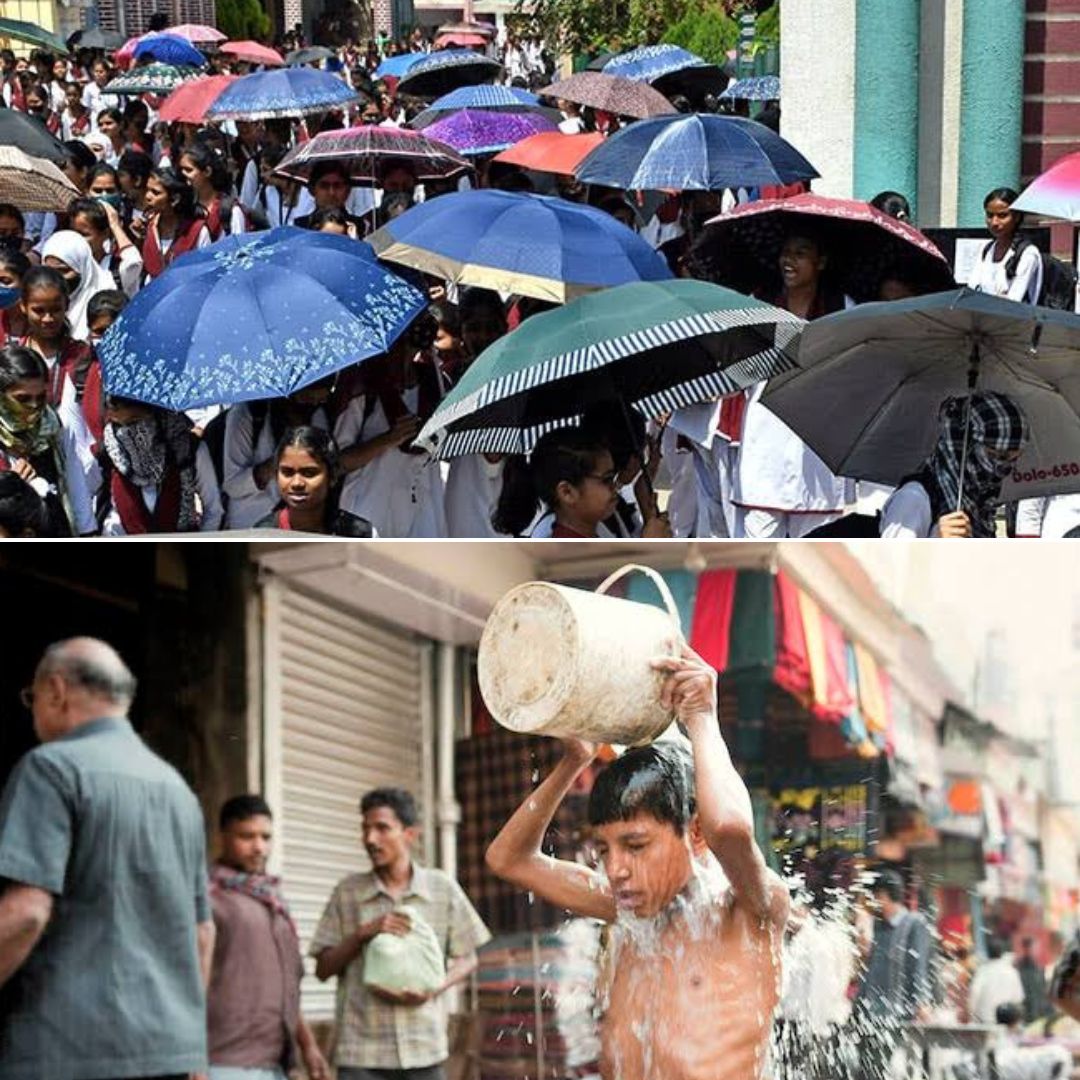
Image Credits: NDTV and India Climate Dialogue
Heat-Related Deaths In India Rose By 55% Between 2000-04 To 2017-21, Reveals Lancet Report
Writer: Laxmi Mohan Kumar
She is an aspiring journalist in the process of learning and unlearning many things. Always up for discussions on everything from popular culture to politics.
India, 27 Oct 2022 6:50 AM GMT
Editor : Snehadri Sarkar |
While he is a massive sports fanatic, his interest also lies in mainstream news and nitpicking trending and less talked about everyday issues.
Creatives : Laxmi Mohan Kumar
She is an aspiring journalist in the process of learning and unlearning many things. Always up for discussions on everything from popular culture to politics.
The rapidly increasing temperatures, a result of climate change, has led to the loss of several lives and livelihoods. In India, the heat-related deaths alone rose by 55 per cent within a span of about 20 years.
According to the 2022 Lancet report titled 'Countdown on health and climate change', heat-related deaths globally were shown to have increased by 68 per cent between 2000–04 and 2017–21. The death toll was worsened even further with the onset of the COVID-19 pandemic.
As for India, the report traced a 55 per cent rise in deaths due to extreme heat during the said period. In the year 2020 alone, over 3,30,000 people died in the country after being exposed to particulate matter from fossil fuel combustion.
Climate Change Becoming A Lot More Visible
The report revealed that the rapidly increasing temperatures exposed vulnerable populations (adults older than 65 years and children younger than one year) to three billion more heat wave days in 2021 than what was recorded annually from 1986 –2005.
Between March to April 2022, India was said to have experienced a heat wave that was 30 times more likely to have been attributed to climate change. It severely affected many people's lives and livelihoods.
Several reports suggested that the heatwave caused a loss of 167.2 billion potential labour hours among Indians in the year 2021. This was aggravated further in 2022 as the heatwave intensified, resulting in income losses equivalent to over five per cent of the national Gross Domestic Product (GDP).
The changing climate also affected the "spread of infectious diseases, putting populations at higher risk of emerging diseases and co-epidemics", added the report. Exposure to extreme heat affects people's health directly by worsening underlying conditions such as cardiovascular and respiratory disease. It is also attributed to cases of 'heat stroke, adverse pregnancy outcomes, increased injury-related death, and poor mental health.'
A Threat That Continues To Remain Unaddressed
The study that was released on the morning of October 26 came up with the findings on the basis of the analysis conducted on 42 indicators across five domains – climate change, adaptation, planning and resilience for health, mitigation actions and health co-benefits, economics and finance, and public and political engagement.
The report states that climate change has exponentially amplified the health impacts of multiple crises in India. Apart from having directly impacted people, it also indirectly paved the way for the spread of other diseases by facilitating favourable conditions for certain vectors. This was particularly found to be true in the case of dengue transmission by the Aedes aegypti mosquito.
According to a report by the New Indian Express, the study also highlighted the contribution of fossil fuel-derived particulate matter in the death toll reported from India. Recommending efforts to improve the air quality, the study suggested that governments and companies have to proactively take decisions that benefits the environment in a sustainable manner.
However, it also stated that both these entities continue to follow strategies that increasingly threaten the health and survival of all people and future generations.
Also Read: Feel The Heat! Brutal Heatwave In India Leaves Millions Struggling To Cope
 All section
All section














